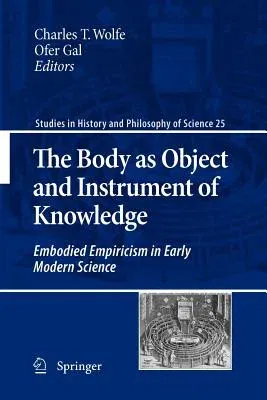It was in 1660s England, according to the received view, in the Royal
Society of London, that science acquired the form of empirical enquiry
we recognize as our own: an open, collaborative experimental practice,
mediated by specially-designed instruments, supported by civil
discourse, stressing accuracy and replicability. Guided by the
philosophy of Francis Bacon, by Protestant ideas of this worldly
benevolence, by gentlemanly codes of decorum and by a dominant interest
in mechanics and the mechanical structure of the universe, the members
of the Royal Society created a novel experimental practice that
superseded former modes of empirical inquiry, from Aristotelian
observations to alchemical experimentation.
This volume focuses on the development of empiricism as an interest in
the body - as both the object of research and the subject of experience.
Re-embodying empiricism shifts the focus of interest to the 'life
sciences'; medicine, physiology, natural history. In fact, many of the
active members of the Royal Society were physicians, and a significant
number of those, disciples of William Harvey and through him, inheritors
of the empirical anatomy practices developed in Padua during the
16th century. Indeed, the primary research interests of the
early Royal Society were concentrated on the body, human and animal, and
its functions much more than on mechanics. Similarly, the Académie des
Sciences directly contradicted its self-imposed mandate to investigate
Nature in mechanistic fashion, devoting a significant portion of its
Mémoires to questions concerning life, reproduction and monsters,
consulting empirical botanists, apothecaries and chemists, and keeping
closer to experience than to the Cartesian standards of well-founded
knowledge.
These highlighted empirical studies of the body, were central in a
workshop in the beginning of 2009 organized by the unit for History and
Philosophy of Science in Sydney. The papers that were presented by some
of the leading figures in this area are presented in this volume.


